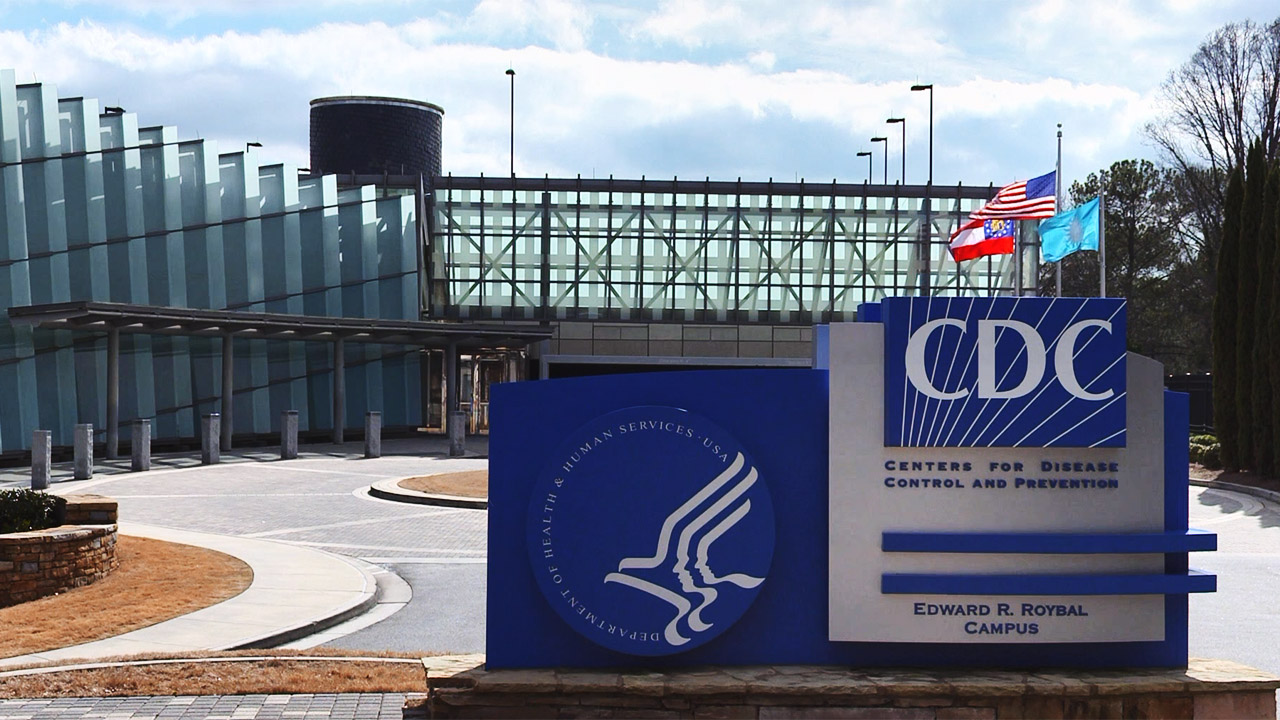Health
Mary Jane meets Uncle Sam
First medical marijuana dispensary prepares to open in D.C.
By DAVE PURDY
Scholars acknowledge George Washington and Thomas Jefferson grew marijuana. President Obama admits he smoked it. George W. Bush and Bill Clinton did, too (well, kind of). Six percent of the U.S. population uses it daily. It’s cheap, has been cultivated since the third millennium B.C., and thrives in almost any soil. Yet, in the United States, it’s still an illegal substance.
All eyes will be on Washington, D.C., when sometime this spring, the first medical marijuana dispensary in our nation’s capital, will open, and authorities predict the Capital City Care Dispensary will be the most regulated in the nation.
The pharmacology of marijuana or cannabis includes tetrahyrocannabinol (THC) – the fun stuff – as well as cannabinoids — the good stuff — which has medicinal properties. Yet, there’s still a stigma associated with the plant, even though scientists throughout the world are eager to explore the therapeutic value of cannabinoids.
One company, Cannabis Science, is developing methods for using cannabis to treat Kaposi’s Sarcoma (KS), the No. 1 cancer around the world, especially in Africa. Experts fear KS is making a comeback because of HIV-related drug resistance. Cannabis Science is raising awareness of the promise of groundbreaking Cannabinoid-based treatment of cancer, including HIV-related cancers such as Kaposi’s Sarcoma, and other medical conditions.
Another company doing research is GW Pharmaceuticals, which is studying how cannabis can be turned into an oral anti-diabetic treatment. Scientists throughout the world today are also exploring using cannabis to treat multiple sclerosis and depression.
Dr. Bob Melamede, founder of Cannabis Science, a publicly traded company told the Blade, “We are now on the verge of proving scientifically what the medical cannabis community has known for decades, that cannabis could be one of our most important treatments for all age-related illnesses as well as for a subset of viral infections including HIV, KSHV and influenza.”
Here’s some interesting data: The CDC estimates there are approximately 1.7 million nosocomial (hospital-associated) infections each year, causing about 100,000 deaths. Automobile accidents, according to the U.S. Department of Transportation, numbered around 32,000 in 2010. Compare those data with the number of deaths from cannabis overdose: zero.
So why the stigma associated with cannabis – or with being gay or having HIV or living with mental health issues? Fear. The war on drugs is all about fear.
Eighteen states including the District of Columbia have legalized cannabis for use in patients suffering from glaucoma, nausea and vomiting related to HIV and cancer to stimulate the appetite. In November, voter referenda in Colorado and Washington State approved legalizing its use in general.
The result? It’s sometimes impossible, and always difficult, to rent property to use for medical marijuana dispensaries and controlled cultivation centers, even in the states where it is legal. Another problem is almost all banks and credit card companies refuse to open accounts for legitimate cannabis businesses.
On the positive side, several nations, including Canada, Austria and Spain, have legalized cannabis for medicinal use, while The Netherlands doesn’t even impose the medical-use-only restriction.
Yet, here in the United States federal law, which trumps state laws, claims “there is no such thing as ‘medical’ marijuana” and “has no currently accepted medical use” in the United States. President Obama has made clear that going after cannabis users is not a priority of his administration. However, the current federal law is still in place and trumps state laws.
The only way this will change is if Congress passes legislation allowing states to regulate.
Finally, here is the sad part of the cannabis story. The Food and Drug Admiration has not approved cannabis for any condition or disease in the United States. With dispensaries opening in Washington, DC we have a unique opportunity to obtain real science by creating a clinical trial network that will give us the important medical and scientific information about cannabis and move from dispensaries to biotech and pharmaceutical support, while saving lives and in the least extend the quality of life for millions.
Dave Purdy is founder and CEO of the World AIDS Institute. Reach him at [email protected].
Health
UNAIDS to commemorate Zero Discrimination Day’s 10th anniversary
UN agency urges global action to protect human rights

As the world marks the 10th anniversary of Zero Discrimination Day; UNAIDS is sounding the alarm on the increasing threats to human rights, calling for renewed efforts to protect the rights of all individuals as a fundamental step towards ensuring health for everyone.
Established by UNAIDS a decade ago, Zero Discrimination Day aims to promote equality and fairness regardless of gender, age, sexuality, ethnicity or HIV status. The progress achieved over the past years is now in jeopardy, however, due to rising attacks on the rights of women, LGBTQ people and other marginalized communities.
UNAIDS Executive Director Winnie Byanyima emphasized the critical link between protecting human rights and safeguarding public health.
“The attacks on rights are a threat to freedom and democracy and are harmful to health,” she said in a press release. “Stigma and discrimination obstruct HIV prevention, testing, treatment and care and hold back progress towards ending AIDS by 2030. It is only by protecting everyone’s rights that we can protect everyone’s health.”
Despite challenges, there has been notable progress.
At the onset of the AIDS pandemic more than 40 years ago, two-thirds of countries criminalized consensual same-sex sexual relations. They are now decriminalized in two-thirds of countries. An additional 38 countries around the world have pledged to end HIV-related stigma and discrimination, contributing to positive changes that include 50 million more girls attending school compared to 2015.
To sustain and enhance these advancements; UNAIDS urges global support for women’s rights movements, LGBTQ rights, racial justice, economic justice, climate justice and peace initiatives. By standing with communities advocating for their rights, the U.N. aims to reinforce the collective effort towards a more inclusive and equitable world.
Zero Discrimination Day is observed on March 1.
Events and activities that will take place around the world throughout the month will serve as reminders of the essential lesson and call to action: Protecting everyone’s health is synonymous with protecting everyone’s rights.
“Through upholding rights for all, we will be able to achieve the Sustainable Development Goals and secure a safer, fairer, kinder and happier world — for everyone,” said Byanyima.
Health
New CDC report finds transgender women at higher risk for HIV
More than 1,600 people in seven cities surveyed

The Centers for Disease Control and Prevention issued a new study report this week that revealed that restricted by employment and housing discrimination and lack of access to needed gender-affirming healthcare for transgender women increasing the risk of contracting HIV.
Researchers reviewed data from a 2019-2020 survey, the National HIV Behavioral Surveillance Among Transgender Women, which found that the demographics of HIV/AIDS have been disproportionally high, especially among Black and Latina trans women, who had experienced employment and housing discrimination coupled with lack of access to gender-affirming healthcare.
The Jan. 25 Morbidity and Mortality Weekly Report was based on data studies of more than 1,600 trans women in seven major urban locales. Participants from Atlanta, Los Angeles, New Orleans, New York, Philadelphia, San Francisco and Seattle were chosen by referrals from people and community-based organizations who knew or were part of the local population of trans women.
The study’s researchers noted: “Employment discrimination occurs at the overlapping nexus of poverty, homelessness, incarceration, health insurance, disability, food insecurity and survival sex work. These issues are interconnected.”
The study stated that trans women’s inability to access quality healthcare, including gender-affirming treatment or access to PrEP, and can expose them to potential incarceration as many turn to “survival sex work” and violence, which increases the risk of contracting HIV.
The study’s author’s pointed out: “When economically marginalized transgender women are refused employment, this refusal cyclically contributes to economic hardships. This analysis …demonstrates the importance of transgender women working and living with dignity and without fear of unfair treatment.”
Health
A Whole New Perspective on Well-Being
The Mather’s team recognizes that everyone’s wellness journey is completely unique to their life experiences and influences.

It’s easy to spot the distinctive, elegant silhouette of The Mather, a Life Plan Community for those 62+ opening this spring in Tysons, Virginia. What is not apparent to the naked eye is The Mather’s unique wellness philosophy, which is literally built into the community.
The Mather’s team recognizes that everyone’s wellness journey is completely unique to their life experiences and influences.
Nature is one of the important factors that contribute to well-being. So The Mather is incorporating biophilic design—a design approach to facilitate access to nature or things that replicate natural patterns. This can include interior spaces with sightlines to a garden, choosing natural wood and stone as interior materials, or incorporating fragrant flowers and plants indoors to spark memories and provide tactile opportunities such as gardening.

“Providing biophilic design within interior settings connects residents to the natural world,” says Mary Leary, CEO and President of Mather, the organization behind The Mather. “Research shows that a connection to nature provides positive benefits to mental states and overall well-being. At The Mather, biophilic design is the intersection of buildings and programs with nature in an urban setting.”
“The Mather is attracting a diverse group of older adults,” says Mary. “As a result, we aim to incorporate wellness practices from around the world, including Wyda movement theory of the Celtic Druids, which helps people achieve harmony with nature and contentment through mindfulness.” This holistic regenerative approach is similar to Qi Gong and yoga, while born in a different part of the world. Mather Institute has a special focus on mindfulness to support older adults’ practice of present moment awareness, which can lead to increased overall well-being, compassion, and joy.
A very different example of a wellness offering at The Mather is the Gharieni Welnamis spa wave bed, which uses computer-controlled vibrational therapy and audio frequencies to train the brain to relax. “The bed increases mindfulness, concentration, and creativity—all of which support our mission of creating Ways to Age Well,SM” says Mary.
These and other personalized ways to wellness will ensure that residents of The Mather can choose from seemingly countless ways to focus on their well-being. In other words, the sky’s the limit!



















